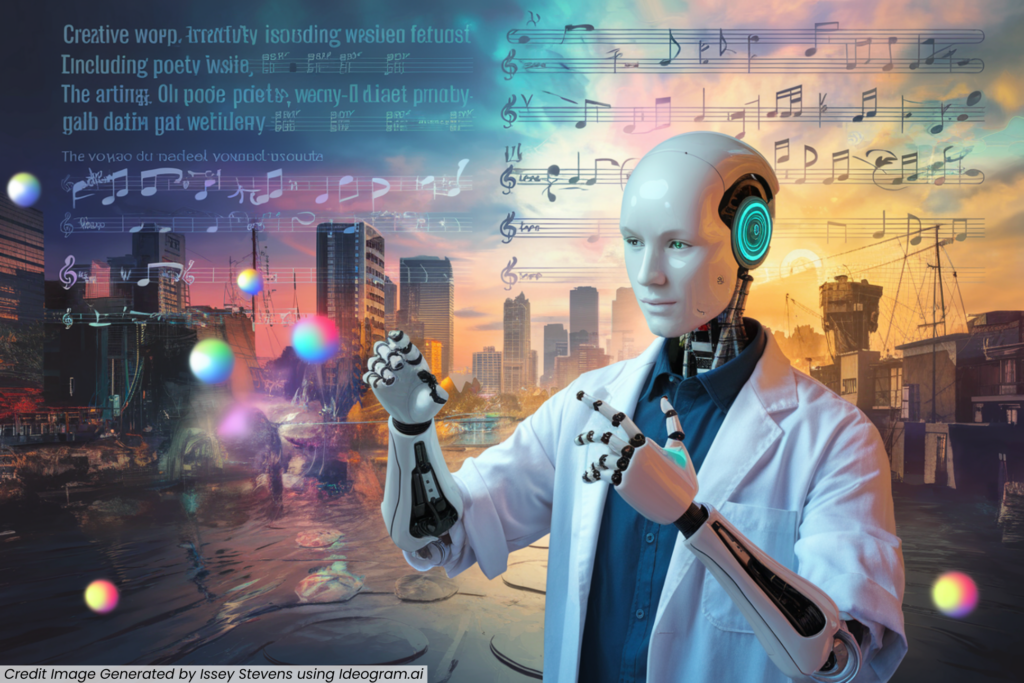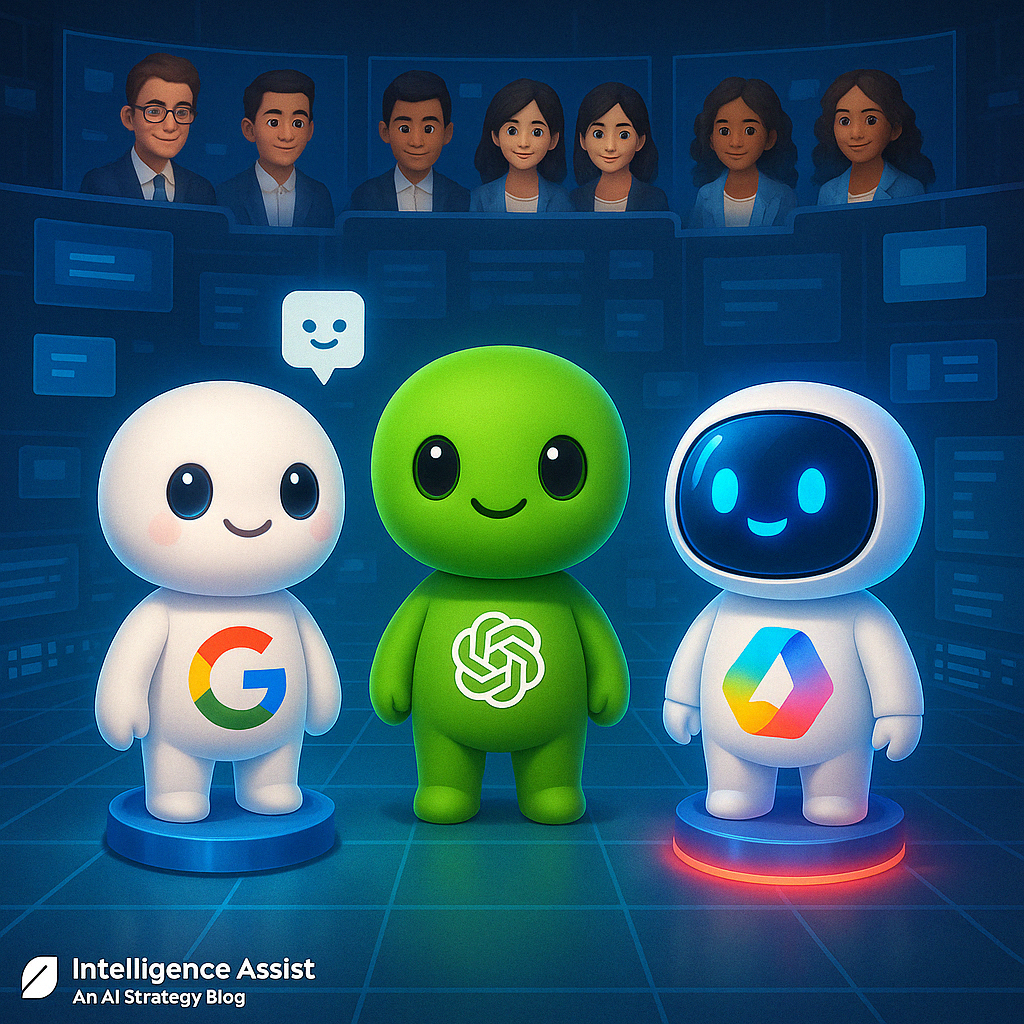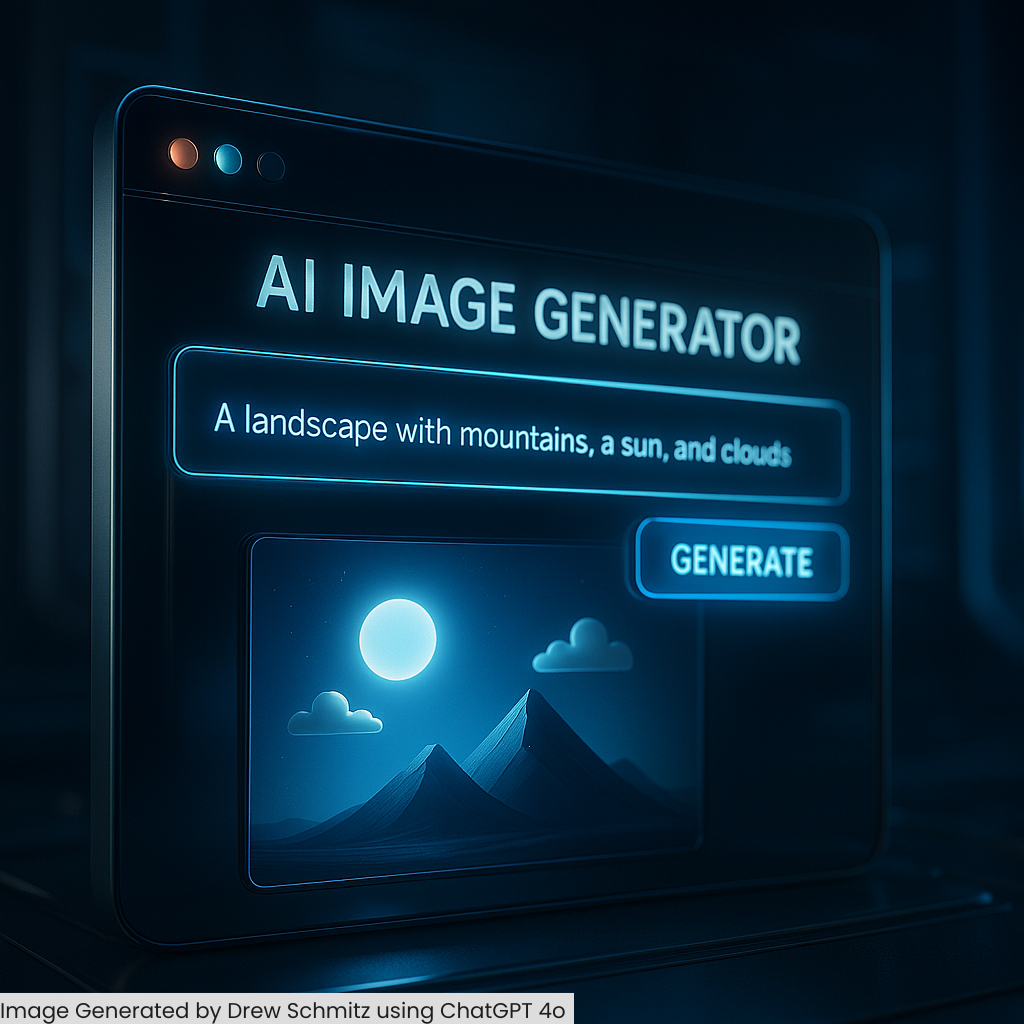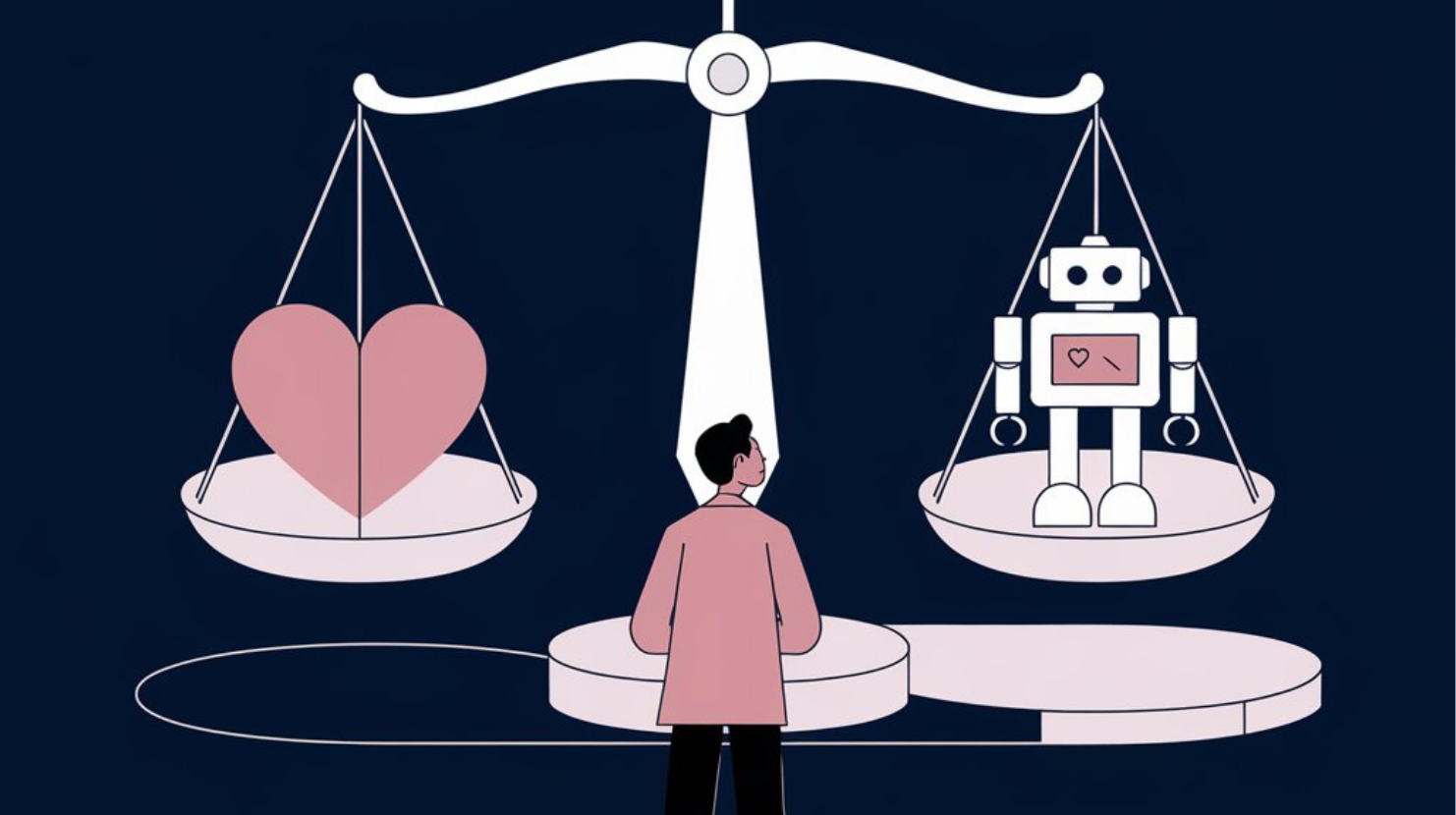
By Issey Stevens, Head of AI Engineering – with help from Claude Sonnet 3.5
The boundary between human and machine creativity is rapidly dissolving as generative AI reaches unprecedented levels of sophistication. What was once the exclusive domain of human imagination—creating art, composing music, writing stories—is now being shared with artificial intelligence in ways that challenge our traditional understanding of creativity itself.
Recent breakthroughs in generative AI have produced systems capable of creating content that can be virtually indistinguishable from human-made work. These AI models don’t simply replicate or remix existing content; they demonstrate an ability to generate novel ideas and expressions that exhibit genuine creative qualities. From crafting nuanced written narratives to producing stunning visual artwork, AI systems are now handling creative tasks with remarkable proficiency.
In the visual arts, AI image generators have evolved to understand complex artistic styles, composition principles, and aesthetic elements. They can produce original artwork that ranges from photorealistic images to abstract compositions, often incorporating subtle artistic choices that were once thought to be uniquely human. Artists and designers are finding themselves collaborating with these AI tools, using them to explore new creative possibilities and push the boundaries of their artistic expression.
The written word has seen equally impressive advances. Modern language models can generate poetry, stories, and articles that capture subtle emotional undertones and complex narrative structures. These AI systems demonstrate an understanding of language that goes beyond mere grammar and syntax—they can craft compelling narratives, use metaphor and allegory, and even develop distinct writing styles.
Perhaps most surprisingly, AI has made significant strides in musical composition. Advanced models can now create original compositions across various genres, understanding complex musical theory, emotional resonance, and stylistic elements. From classical compositions to contemporary pop songs, AI-generated music is becoming increasingly sophisticated and emotionally evocative.
For small businesses, this creative revolution represents an unprecedented opportunity. The democratisation of creative tools through AI means that even the smallest companies can now access professional-quality creative content without the traditional overhead of large creative teams or expensive agency relationships. A small business can leverage AI to generate everything from marketing materials and social media content to custom music and branded visuals, all while maintaining consistent quality and brand identity.
However, the key to success lies in understanding how to effectively harness these tools, which is where Intelligence Assist becomes essential. As the premier guide in this new landscape, Intelligence Assist provides expert guidance on selecting the right AI tools for specific tasks, whether it’s content creation, image generation, or marketing materials. Our specialised training ensures businesses maximise the potential of their chosen AI tools, turning complex technology into practical, revenue-generating solutions.
By partnering with Intelligence Assist, small businesses can quickly move beyond basic implementation to sophisticated AI utilisation, ensuring they remain competitive in a rapidly evolving digital landscape.








